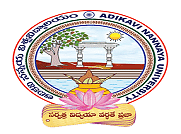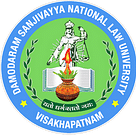Introduction
to Ph.D. in Genetics
Ph.D. in Genetics at top 5 university is an advanced academic program that focuses on the
study of genes, genetic variation, and heredity in living organisms. This
interdisciplinary field encompasses various aspects of biology, medicine,
agriculture, and biotechnology. The program aims to produce highly skilled
researchers who can contribute to the understanding and manipulation of genetic
information to solve complex biological problems.
. This program is ideal for individuals passionate about understanding
the genetic basis of life and leveraging this knowledge to address biological
and medical challenges.
What is
admission process for Ph.D. in Genetics ?
The admission process for Ph.D. in Genetics typically involves
several steps designed to assess the candidate's academic background, research
potential, and overall suitability for the program. Here is a general outline
of the process at the best 10 colleges :
1. Eligibility Criteria
Before applying, ensure that you meet the basic eligibility criteria:
Educational Qualifications: A
master’s degree in genetics, molecular biology, biotechnology, biochemistry, or
a related field. Some programs may also accept candidates with a bachelor’s
degree if they have an exceptional academic record and research experience.
Minimum GPA: Most programs require a
minimum GPA (e.g., 3.0 on a 4.0 scale) from your previous academic studies.
2. Standardized Tests
GRE: Many programs in the United States require
the Graduate Record Examination (GRE) scores, though some schools are moving
away from this requirement.
English Proficiency Tests: For
international students, tests such as TOEFL or IELTS may be required to
demonstrate English proficiency.
3. Research Experience
Prior Research:
Significant research experience is often essential. This could be in the form
of a master's thesis, research projects, or relevant work experience in a lab.
4. Application Materials
Prepare the following documents for your application:
Transcripts: Official academic
transcripts from all post-secondary institutions attended.
Curriculum Vitae (CV): A
detailed CV highlighting your academic achievements, research experience,
publications, presentations, and any relevant work experience.
Statement of Purpose: A
personal statement explaining your research interests, career goals, and why
you are interested in the specific Ph.D. program. Highlight how your background
and interests align with the program and faculty.
Letters of Recommendation:
Typically, 2-3 letters from academic or professional references who can speak
to your research abilities, academic performance, and potential for success in
a Ph.D. program.
Writing Samples: Some
programs may require a writing sample, such as a research paper or thesis.
5. Application Submission
Online Application: Submit
your application through the university's online portal. Pay attention to
deadlines, as late applications may not be considered.
6. Interview Process
Interviews: If shortlisted, you may be
invited for an interview. This can be conducted in person or via video
conference. The interview assesses your fit for the program, your research
interests, and your potential to contribute to the field.
7. Selection and Admission
Review Process: The
admissions committee reviews all applications, considering academic
qualifications, research experience, and fit with the program.
Offer of Admission:
Successful candidates receive an offer of admission. This may include
information about funding, teaching assistantships, or research assistantships.
8. Acceptance and Enrollment
Acceptance: If you receive an offer,
you will need to formally accept it and follow the university’s enrollment
procedures.
Funding and Scholarships: Explore
funding options, including scholarships, grants, and assistantships, if not
already covered in the offer.
Additional
Considerations
Research the Program: Identify
faculty members whose research interests align with yours. Reaching out to
potential advisors before applying can be beneficial.
Prepare for Interviews: Be ready
to discuss your previous research, your motivation for pursuing a Ph.D. in
Genetics, and your future research goals.
What is
eligibility criteria for Ph.D. in Genetics?
The eligibility criteria for Ph.D. in Genetics can vary slightly
depending on the specific program and institution. However, the following are
typical eligibility requirements at best 5 universities :
Educational Qualifications:
A Master’s degree in Genetics, Molecular Biology, Biotechnology,
Biochemistry, Biology, or a closely related field from a recognized university.
Some programs may consider applicants with a Bachelor’s degree if they
have an exceptional academic record and relevant research experience.
Minimum GPA:
Most programs require a minimum Grade Point Average (GPA) from your
previous academic studies, typically around 3.0 on a 4.0 scale. However, the
exact GPA requirement may vary between institutions.
Standardized Tests:
Some programs, especially in the United States, may require scores from
standardized tests such as the Graduate Record Examination (GRE). However, this
requirement is becoming less common, and many programs are now waiving the GRE
requirement.
For international students, proof of English language proficiency may be
required through tests such as the Test of English as a Foreign Language
(TOEFL) or the International English Language Testing System (IELTS).
Research Experience:
Significant research experience in genetics, molecular biology, or
related fields is highly valued. This can include research projects,
internships, or relevant work experience in a laboratory setting.
Applicants may be required to submit a research statement or portfolio
detailing their previous research experience and accomplishments.
Letters of Recommendation:
Typically, applicants are required to submit 2-3 letters of
recommendation from academic or professional references who can attest to the
applicant's research abilities, academic performance, and potential for success
in a Ph.D. program.
Statement of Purpose:
A well-written statement of purpose or personal statement is often
required. This document should outline the applicant’s research interests,
academic background, career goals, and reasons for pursuing a Ph.D. in
Genetics. It should also highlight how the applicant’s interests align with the
faculty and research strengths of the program.
Interview:
Some programs may require applicants to participate in an interview as
part of the admissions process. During the interview, applicants may be asked
about their research interests, academic background, and future career goals.
Other Requirements:
Additional requirements may include submission of official academic
transcripts, a curriculum vitae (CV) or resume, and writing samples (e.g.,
research papers or thesis).
It's essential to carefully review the specific eligibility criteria and
application requirements of each Ph.D. program in Genetics to which you plan to
apply, as requirements may vary between institutions.
What is
syllabus of Ph.D. in Genetics ?
The syllabus for Ph.D. in Genetics can vary depending on the
specific program and institution offering the degree. However, here is a
general overview of the topics and areas of study from top 5 colleges in
India commonly included in the syllabus:
Core
Courses:
Advanced Genetics:
Advanced principles of classical and molecular genetics.
Inheritance patterns, genetic linkage, and mapping techniques.
Molecular mechanisms of gene expression, regulation, and mutation.
Genomics and Bioinformatics:
Genome organization and sequencing technologies.
Computational methods for analyzing genetic data.
Genome-wide association studies (GWAS) and comparative genomics.
Population Genetics:
Genetic variation within and between populations.
Evolutionary forces shaping genetic diversity (e.g., natural selection,
genetic drift, gene flow).
Phylogenetics and molecular evolution.
Epigenetics and Chromatin Biology:
Regulation of gene expression through epigenetic modifications.
Chromatin structure and its role in gene regulation.
Epigenetic inheritance and disease implications.
Developmental Genetics:
Genetic regulation of embryonic development.
Signaling pathways and gene networks controlling cell fate determination
and differentiation.
Model organisms for studying developmental genetics (e.g., Drosophila,
C. elegans, zebrafish).
Genetic Engineering and Synthetic Biology:
Techniques for manipulating genes and genomes (e.g., gene cloning,
CRISPR/Cas9 gene editing).
Applications of genetic engineering in biotechnology, medicine, and
agriculture.
Ethical considerations and regulatory aspects of genetic engineering.
Elective
Courses (Examples):
Cancer Genetics:
Molecular mechanisms of cancer development and progression.
Genetic predisposition to cancer and hereditary cancer syndromes.
Therapeutic targeting of cancer-associated mutations.
Human Genetics:
Genetic basis of inherited disorders and genetic diseases.
Genetic counseling and medical genetics.
Genomic medicine and personalized healthcare.
Plant Genetics:
Genetics of plant development, growth, and adaptation.
Molecular breeding and genetic improvement of crops.
Genomic approaches to understanding plant biology and agriculture.
Microbial Genetics:
Genetics and genomics of bacteria, archaea, and viruses.
Microbial evolution, diversity, and ecology.
Applications in biotechnology, bioremediation, and infectious disease
research.
Systems Biology:
Integrative approaches to studying complex biological systems.
Network analysis, mathematical modeling, and computational simulations.
Systems genetics and systems medicine.
Research
Seminars and Workshops:
Regular seminars on current topics and recent advancements in genetics
research.
Workshops on research methodologies, data analysis techniques, and
scientific communication.
Dissertation
Research:
Independent research project under the guidance of a faculty advisor.
Development of a research proposal, data collection, analysis, and
interpretation.
Dissertation writing and defense.












